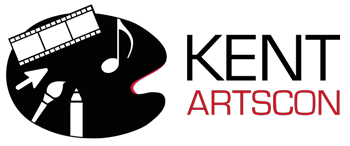Svetlana Higgins is a classic aficionado, an independent piano teacher with over 20 years of experience – an ABRSM member educated in the tradition, style and manner that characterises the piano school that has been taught since the time of Tchaikovsky, Rachmaninoff and Horowitz.
She teaches students of a variety of levels of experience towards exams and scholarships. In March last year, one of her students was offered a place in Harrow. Currently, her students are working towards grades 5, 6, 7 and 8 with one working at the Diploma level. After achieving a number of 29 out of 30 scores with her students at exams, last December one of her students finally achieved a perfect score for a Bach piece. Her students participate in local festivals and competitions.
She was a guest performer at the grand opening of the Turner Contemporary in 2011. In May 2023, she performed at the opening ceremony at the new Kent Talents Arts Centre & Gallery.
The Wonder of the Piano – Lessons of Admiration and Appreciation
In my presentation, “The Wonder of the Piano”, the piano is like a living soul filled as much with hopes, yearnings, and disappointments as with strings and hammers and felt.
Classical music isn’t a museum piece to be looked at and not touched. It belongs to all – the ones with years of listening experience, who have already absorbed the current conventions of concert-going practice (don’t applaud between movements, obey the dress code, etc.), and who might well have had years of formal training) or just the first time in a concert hall. I will explore the exposure to classical music which shouldn’t be strictly educational kind of “eat-your-broccoli-because-it’s-good-for-you” doses and why it should be part of the larger flow of life.
According to the Oxford English Dictionary, the word “celebrity” was first used in the way we use it now in the 1830s, as Liszt rose to fame. He was the first to perform the whole of the known keyboard repertoire from Bach to his contemporary Chopin and he did so, moreover, from memory. Liszt’s fiendishly difficult Transcendental Etudes point out that between 1830 and 1850, he invented pretty much every possible pianistic device that appears in modern piano writing.
Another area I believe every person can obtain and consider themselves of an Olympic standard, is in listening. I recommend an extensive listening repertoire and create playlists. For example, the current Sea list contains The Sea Storm by Vivaldi, La Mer and Nocturnes Sirenes by Debussy, The Sea symphonic poem by Ciurlionis, Etudes-Tableaux, 2 op39 by Rachmaninov (known as Sea and Seagulls) and Scheherazade (movement 1) and Sadko by Rimsky-Korsakov.
